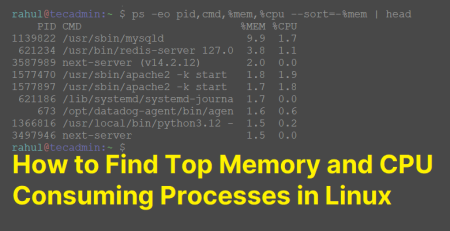Bash is a popular shell scripting language that is commonly used in Linux and Unix-based operating systems. One of the most commonly used constructs in Bash is the for loop, which is used to iterate over a set of items and perform a particular action on each item. However, it is important to write efficiently for loops in order to optimize script performance.
It is also important to note that Bash is just one of many scripting languages available, and its capabilities may be limited in certain scenarios. If you find that your Bash scripts are becoming too complex or difficult to optimize, you may want to consider using a more powerful scripting language, such as Python or Perl.
In this tutorial, we will explore some tips and tricks for writing efficiently for loops in Bash.
Tip #1: Use the Right Syntax
The syntax for basic for loop in Bash is as follows:
1 2 3 4 | for variable in [list] do [command(s)] done |
The [list] can be a set of items separated by spaces, or it can be a range of numbers specified using the {start..end} syntax. It is important to use the correct syntax for your specific use case.
For example, if you are iterating over a large set of items, it is better to use the range syntax instead of listing out each item individually. This can help to improve performance by reducing the number of iterations needed to complete the loop.
Tip #2: Minimize External Commands
Every time you execute a command within a for loop, it incurs a performance penalty due to the overhead of launching a new process. Therefore, it is important to minimize the number of external commands you use within your for loop.
For example, instead of using an external command to count the number of files in a directory, you can use a built-in Bash command to accomplish the same thing:
1 2 3 4 5 | file_count=0 for file in /path/to/directory/* do ((file_count++)) done |
This eliminates the need for an external command, which can help to improve performance.
Tip #3: Use Arrays
Using an array to store the items you want to iterate over can help to improve the efficiency of your for loop. This is because arrays are more efficient than using a string of space-separated values.
For example, instead of using a space-separated list of values like this:
1 2 3 4 | for value in value1 value2 value3 value4 do [command(s)] done |
You can use an array like this:
1 2 3 4 5 | values=("value1" "value2" "value3" "value4") for value in "{values[@]}" do [command(s)] done |
This can help to improve performance by reducing the overhead of parsing the string into individual values.
Tip #4: Use Shell Parameter Expansion
Using shell parameter expansion can help to simplify your for loop and improve performance by reducing the number of commands you need to execute.
For example, instead of using an external command to find the length of an array, you can use shell parameter expansion like this:
1 2 3 4 5 | values=("value1" "value2" "value3" "value4") for ((i=0; i<${#values[@]}; i++)) do [command(s) "{values[i]}"] done |
This eliminates the need for an external command, which can help to improve performance.
Tip #5: Use Bash’s Built-in Commands
Bash has a number of built-in commands that can help to improve the efficiency of your for loops. For example, you can use the printf command to print formatted output within your loop, which can be more efficient than using an external command like echo.
1 2 3 4 | for i in {1..10} do printf "Number %d\n" "$i" done |
This can help to improve performance by reducing the overhead of launching external commands.
Conclusion
In conclusion, writing efficient for loops in Bash can significantly improve the performance of your scripts and reduce their execution time. By implementing the tips and tricks discussed in this article, such as minimizing the use of external commands, reducing the number of iterations, and using parallelization techniques, you can optimize your Bash scripts to process data more quickly and efficiently.
Regardless of the language you choose, the key to writing efficient scripts is to constantly analyze and optimize your code, test different approaches, and always keep performance in mind. With these principles in mind, you can create robust and efficient scripts that can handle even the most demanding data processing tasks.

